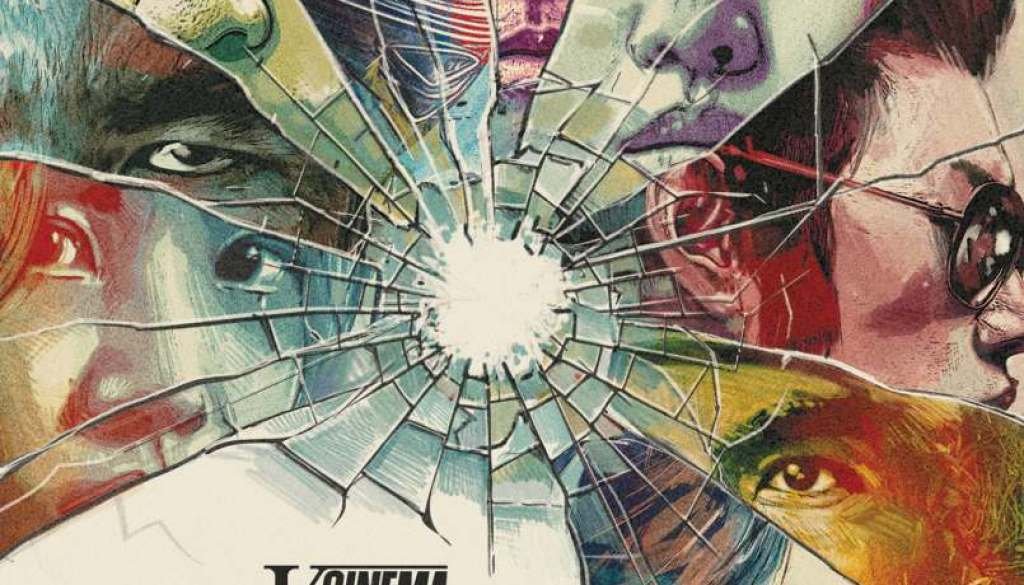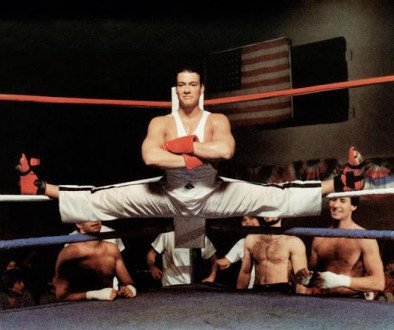Arrow Video’s V-Cinema Essentials: Bullets & Betrayal Review – Part Three: BURNING DOG, and FEMALE PRISONER: DEATH THREAT
Anchors:
• BURNING DOG
• FEMALE PRISONER SCORPION: DEATH THREAT
• CONCLUSION
Part three of our coverage of Arrow Video’s V-Cinema Essentials: Bullets & Betrayal boxset now brings us to the halfway point of this series. First up, is the return of actor Seiji Matano to the table following our earlier spotlight of the actor opposite Masanori Sera in Shundo Okawa’s Crime Hunter: Bullets Of Rage.
To this, leading man Matano brings us another villain to root for in Yoichi Sai’s Burning Dog, another opportune assembly of talents for Toei’s V-Cinema line of home video releases; The disc also comes with an optional video introduction by Japanese film critic Masaki Tanioka. We meet Matano in the role of Shu, in a story that hits the ground running as Shu, a thief betrayed by a member of his own crew after they’ve just completed a job, sets off to hunt down the man that left him for dead.
That portion of the story is but a precursor to the larger score of events that finds Shu now living at a resort in Okinawa where he reunites with old friend, Takajin (Takashi Naito, Stranger). It’s been some time since the two have seen each other, mainly since their crew split after a botched heist years earlier in which one of their own was left behind and shot by police. Burning Dog toggles back and forth from those events as Sai’s crime thriller unfolds a daring heist plot with Takajin doing his best to rope a reluctant Shu back into the fold.
The job? Pull upwards of twenty million dollars from a U.S. military base. It does take a good bit of hand-wringing by Takajin, but eventually Shu takes, and is convinced to jump aboard. The catch? Well, a couple of things could threaten to upend the job before or even right then. Burning Dog spotlights plenty of moments of unrequited love, romantic uncertainty, and even an air of betrayal among several players in the fold. This particularly extends to Shu’s awkward rekindling with old flame, Mei (Mami Kumagai), who now works as a furniture saleswoman.
The film also factors in Takajin’s own marital woes as he visibly seeks out prostitutes and strip joints to unwind, while wife Ryoko (Kim Kumija) has her own set of issues. None of it is pretty, or ethical, and definitely paints a picture of unrest that sets up any matter of potentially explosive recapitulation in Burning Dog. The result in Sai’s vision is a scintillating crime story that balances out all the core ingredients that compliment a shocking final-act twist that guarantees that, at least in a movie like Burning Dog, crime will only pay so much.
The Burning Dog side of the boxset’s third disc includes features comprised mainly of a new video essay by film expert Mark Schilling who dives into a lot of the familiar territory already covered by some of the other features before it regarding V-Cinema and its history. It’s about seventeen minutes long and doesn’t leave you waiting much until it gets into the thick of Burning Dog, its star, and the concept behind the film.
I was suprised to learn that this film was based on a true story, and even more surprised about something even tragic that I won’t get into here. I did admire getting to learn about Matano and how his look in the film greatly echoes that of The Game Trilogy lead star, the late Yusaku Matsuda of Black Rain fame. Honestly, that’s another trilogy of movies I need ASAP, because I have had that trilogy in my wishlist for some time now.
The same goes for a much-needed rewatch of the old school Female Prisoner Scorpion films; Luckily, I did manage to get to look at the inaugural O.G. Female Prisoner Scorpion franchise of the seventies a while back, starring the iconic Meiko Kaji who also sings the title track, “#701’s Grudge.”
That experience gave me what I didn’t know I needed at the time: a shared take on the vibe of one of the memorable pieces of Japanese film history of all time, as an IP that would remain fresh enough to inspire many more incarnations of the anti-heroine. Actress and gravure idol Natsuki Okamoto was one such talent on hand to help accomplish this upon the launch of V-Cinema, albeit carrying the brand in spirit as the lead for Toshiharu Ikeda’s 1991 contribution Female Prisoner Scorpion: Death Threat.
Okamoto’s character is as much of a mystery to us as it is to her, for the most part: The first shot we get is of our protagonist being dumped in a landfill inside of a steel drum, only to emerge from it whilst disoriented and covered in cement, having clearly survived what presumably looks like a harrowing ordeal. That shot jumps a bit forward with our character supposedly dressed as a bum, meandering around a driveway before pulling out a gun and shooting her target and his would-be bodyguard.
Thus, we get our killer introduction into Okamoto’s yet unnamed role as an assassin, groomed and trained to be such by her yakuza lover, Kaizu (Minori Terada). The two are approached by Goda (Kenji Imai), a Prefectural Assemblyman with political aspirations beyond his current station. It just so happens that he’s also the former warden of the prison, presumably home to the notoriously rebellious Nami Matsushima, a.k.a. The Scorpion, who once took out his right eye using a spoon she carved as a shiv.
To better his political chances without them backfiring, he hires Kazui’s killer progeny to the tune of millions. Reluctant at first, she eventually accepts the job she suspects should otherwise be easy enough to pull, with a handful of guards and the acting warden being the only few who are in on the details. Once in, she’s brandished with the prison attribution #701, acclimating to her environment accordingly as a troublemaker with no real need for friends, and eager to make her kill and get out clean.
Little does #701 know, however, that her presumed target is anyone but who she is told it is. Crucified before the prison population with her cover blown, and betrayed by the man she loved, #701’s only chance of survival is a group of daring cellmates willing to risk it all for their freedom, unraveling a darker truth about the prison that ultimately ignites a mission of vengeance, reinvigorated by the Scorpion’s legend and legacy.
The movie is directed by Toshiharu Ikeda, who I think made a concious decision here to create Okamoto’s character as a nameless assassin to help leave space for the character’s growth and evolution. Like I said earlier, she’s kind of a mystery apart from what we first see of her, that is, until the second half of the movie where she flashes back to her more pseudo-innocent days as a runaway partygirl leading up to the violent turning point that bookends a major point in her origin story.
The film also uses flashback moments to help induce some of the fanservice to highlight a few moments for the proper aesthetics in an effort to sell the film as a sequel to the first two Female Prisoner films of the seventies. Japanese film expert and critic Samm Deighan goes into astute detail here in her featured video essay on this side of the disc exploring Ikeda’s career and trajectory leading up to Female Prisoner Scorpion: Death Threat, as well as some of the more nuanced stretches of creativity that contribute to the moment of #701’s spiritual transformation in a key moment during the second half of his film; An actress can be seen hiding her face, intended to be “Sasori” herself in these sequences, including in a shared moment with #701 that definitely mingles a bit with the supernatural.
Some might even call it a stretch to do so, although in my view, Okamoto’s portrayal of a new lead at the time to succeed the Scorpion would have been excellent to see continue if that were the case. I almost wonder if a more solid reboot would be possible, even if for many fans of Showa-era IPs like Female Prisoner Scorpion and the indellible impression left by Kaji’s performance and voice would be hardly something to hold a candle to. If you’re a consistent reader of this site then you probably know how annoyingly open-minded I am about reboots and remakes, and I believe with the right team and talent, such a film would be possible.
To that end, I think the inclusion of Female Prisoner Scorpion: Death Threat to Arrow Video’s V-Cinema Essentials: Bullets & Betrayal speaks credibly to the film’s sustenance in its fanservice. The one thing that probably irks me a little is the choice of style used in the film’s modern upgrade of Kaji’s classic theme, although when applied during the film’s explosive final footchase it does come across sort of menacing with a slasher-genre effect. Seriously, #701 is just out there slicing throats with no fucks to give, and it’s a beauty to see.
Additionally, I admire the casting of Dump Matsumoto. Best known for her extravagant wrestling persona in the 1980s which Netflix explored in 2024 drama, “The Queen Of Villains,” plays a prison guard with a soft spot for one of her male colleagues. Her venomous side surfaces when she has to take charge with #701 to show her who’s boss, and there are a few scenes in the film where Okamoto and Matsumoto get to tussle, which I think makes this film’s re-release through Arrow Video all the more timely and welcome.
*Mind your surroundings when watching the trailer below as it is a bit risqué in the middle with some nudity and sex.
If you enjoyed this article, please consider donating to my Buy Me A Coffee page and supporting my work to keep me going.




